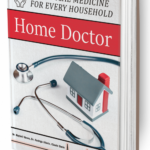
In recent years, the concept of a “Home Doctor” has gained significant traction, particularly in light of the increasing demand for accessible and personalized healthcare solutions. This model involves healthcare professionals, often general practitioners or specialists, who provide medical services in the comfort of a patient’s home. This approach is revolutionizing how we perceive and interact with healthcare, addressing both practical and emotional needs that traditional clinical settings may not fulfill.
Historical Context and Evolution
Doctor home
Historically, house calls were once a standard aspect of medical practice. Physicians would travel to their patients’ homes to deliver care, particularly in rural or underserved areas. However, the proliferation of hospitals and clinics in the 20th century led to a decline in this practice. Recently, a resurgence in home healthcare can be attributed to technological advancements, changing patient demographics, and a shift towards patient-centered care. With an aging population and an increasing prevalence of chronic illnesses, the necessity for a more flexible and responsive healthcare model has become clear.
Benefits of Home Doctor Services
Doctor home
- Personalized Care: One of the primary advantages of home doctor services is the personalized attention patients receive. Home visits allow healthcare providers to assess patients in their everyday environment, providing insights into their lifestyle, social conditions, and mental health that may not be visible in a clinical setting. This holistic approach fosters a deeper doctor-patient relationship and often results in better health outcomes.
- Convenience and Accessibility: For many individuals, particularly the elderly or those with mobility issues, traveling to a healthcare facility can be daunting or even impossible. Home doctor services eliminate this barrier, ensuring that essential medical care is accessible. This convenience can lead to increased patient adherence to treatment plans, as individuals are more likely to engage with healthcare providers when care is delivered in a familiar setting.
- Cost-Effectiveness: While the initial perception might be that home healthcare is more expensive, numerous studies have shown that it can be more cost-effective in the long run. Reducing the need for emergency room visits, hospital admissions, and long-term institutional care can significantly decrease overall healthcare costs. Additionally, home care can minimize the economic burden on families who might otherwise need to take time off work to care for loved ones.
- Comprehensive Care Management: Home doctors can coordinate various aspects of patient care, including medication management, routine check-ups, and follow-ups for chronic conditions. This continuity of care is vital for managing complex health issues and ensuring that patients receive appropriate interventions when necessary. Furthermore, home visits can facilitate timely referrals to specialists, diagnostic tests, or rehabilitation services.
- Enhanced Patient Comfort: For many patients, receiving medical care at home alleviates anxiety and stress associated with clinical visits. Familiar surroundings can contribute to a sense of security and well-being, which is particularly beneficial for individuals suffering from chronic illnesses, mental health conditions, or cognitive impairments. This improved emotional state can have a positive impact on recovery and overall health.
Challenges and Considerations
Doctor home
Despite its many advantages, the home doctor model is not without challenges. The logistical aspects of home visits, such as scheduling and travel time, can pose difficulties for healthcare providers. Additionally, ensuring consistent quality of care across different home environments can be complex. Providers must be equipped with the necessary tools and technology to deliver effective care, including access to medical records and diagnostic equipment.
Another consideration is the regulatory landscape. Home healthcare providers must navigate various laws and regulations that govern medical practice, which can vary significantly by region. Ensuring compliance while maintaining high standards of care is essential for the sustainability of this model.
The Future of Home Healthcare
Doctor home
The future of home doctor services appears promising, particularly as technological innovations continue to advance. Telemedicine, wearable health devices, and mobile health applications are reshaping how healthcare is delivered. These technologies can complement in-person visits by providing real-time monitoring and facilitating communication between patients and healthcare providers. The integration of artificial intelligence and machine learning can further enhance diagnostic capabilities and personalize treatment plans.
As the healthcare landscape evolves, the demand for home doctor services is expected to grow. This shift will likely lead to increased investment in home healthcare infrastructure, training for healthcare professionals, and improved reimbursement models to support this critical aspect of patient care.
Conclusion
Doctor home
In summary, the role of home doctors is becoming increasingly vital in today’s healthcare environment. By providing personalized, accessible, and cost-effective care, they address the evolving needs of patients while enhancing the overall healthcare experience. As we look toward the future, continued innovation and adaptation will be essential in maximizing the potential of home healthcare, ensuring that it remains a cornerstone of comprehensive medical practice. Check this out

